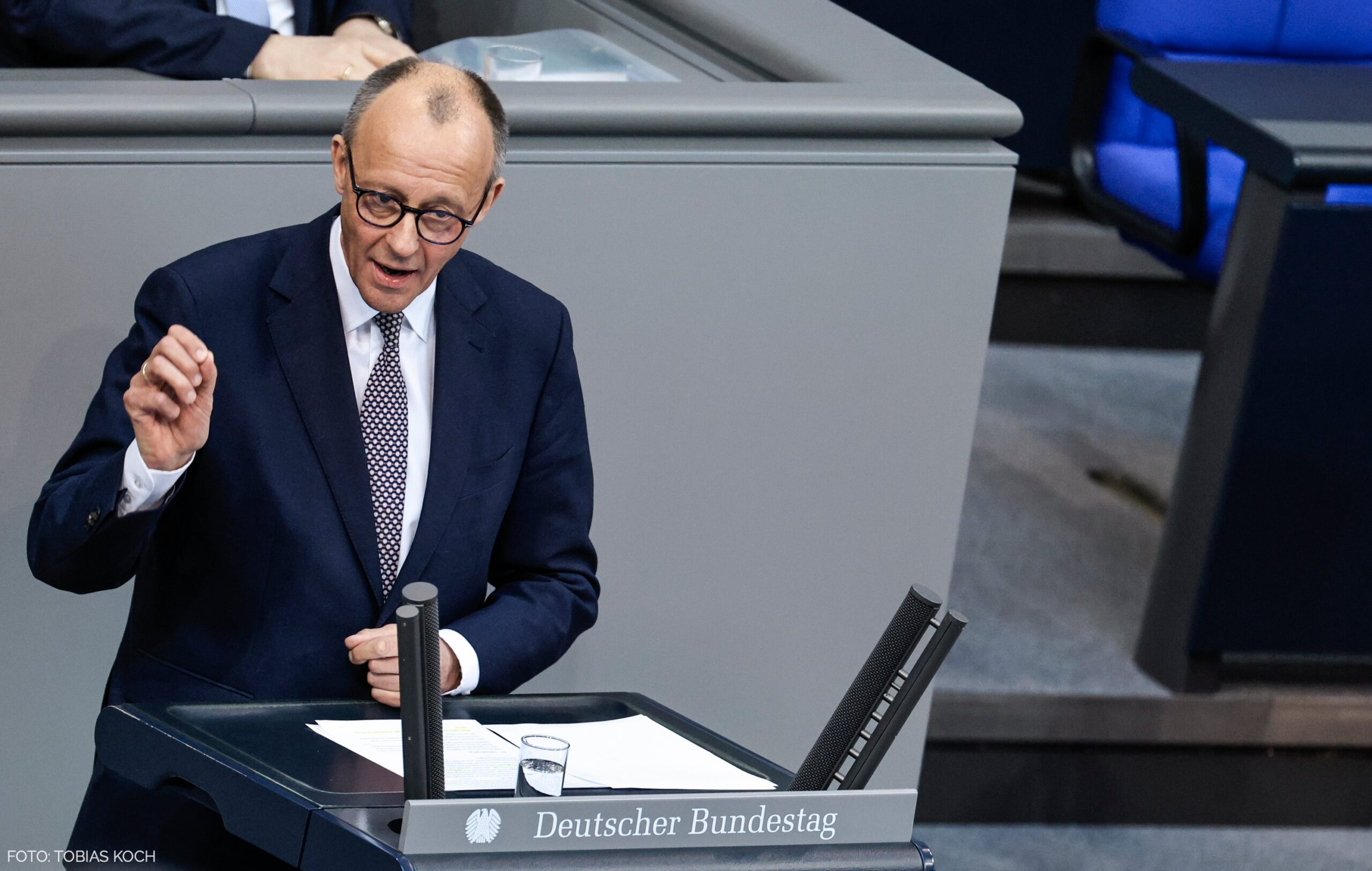Friedrich Merz from the Christian Democratic Union (CDU) was elected German Chancellor in Tuesday afternoon’s second-round Bundestag voting. In the first round, Merz failed to secure a required majority in the parliament.
Three hundred twenty-five members of Germany’s Bundestag, the country’s lower house of parliament, voted for Merz, surpassing the 316 seats needed. In the first round earlier on Tuesday, Merz received 310 votes. He was also the first chancellor candidate since World War II to fail to be elected in the first round.
After the first round failed, Bundestag President Julia Kloeckner interrupted the plenary session. Parliamentary groups of political parties discussed the matter for hours before deciding to hold the second round of voting.
Following the election results, Merz headed for the Federal President’s official residence, Schloss Bellevue, to be formally appointed by President Frank-Walter Steinmeier.
Merz will officially assume the office of federal Chancellor and lead the new government formed by the Union bloc (CDU/CSU) and the Social Democratic Party (SPD).
Born in 1955 in North Rhine-Westphalia, Germany, Merz studied law and served as a judge at the district court in Saarbrucken, capital of Saarland, from 1985 to 1986.
He served as a member of the European Parliament from 1989 to 1994, and a member of the German Bundestag, or lower house of parliament, from 1994 to 2009. He led the CDU/CSU parliamentary group from 2000 to 2002.
After leaving active political life in 2009, Merz announced his return in 2018 following then-Chancellor Angela Merkel’s decision not to seek re-election, Xinhua news agency reported. He became chairman of the CDU and leader of the CDU/CSU parliamentary group.
In addition to political life, Merz has worked for an international law firm, served as chairman of the ‘Atlantic Bridge’ association, which is dedicated to German-American cooperation, and held positions in the business sector.
His close ties to the business community have earned him a reputation as a “pro-business” figure within the CDU. He has promised to revitalise the German economy, aiming for an average annual growth of over two per cent.
Merz advocates for a firmer stance on immigration. Regarding foreign policy, he advocates for reducing Europe’s reliance on the United States and rebuilding Germany’s international standing.
Analysts believe that Merz would pursue a more conservative political agenda.
–IANS





